While the name Elon Musk conjures images of rockets and electric cars, his younger brother, Kimbal Musk, has carved his own path in the world of food and sustainability. Kimbal’s journey began on September 20, 1972, in Pretoria, South Africa. Unlike Elon, who gravitated towards technology from a young age, Kimbal’s early life was a blend of influences that would later shape his unique brand of entrepreneurship.
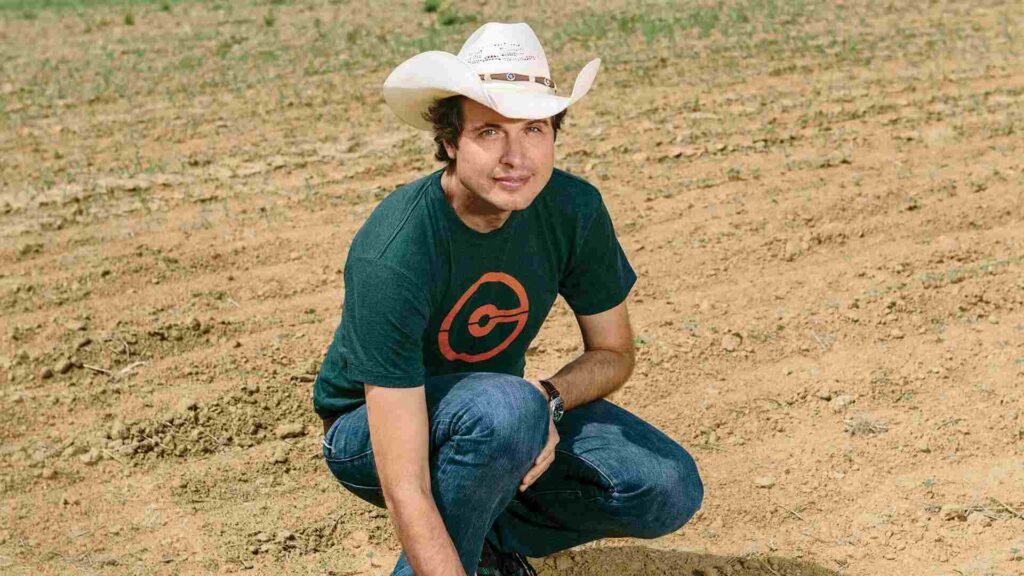
Early Childhood
Kimbal’s parents, Maye and Errol Musk, were a dynamic duo. Maye, a dietician and model, instilled in her children a love for healthy eating and a strong work ethic. Errol, an engineer, brought a spirit of innovation and problem-solving to the household. Growing up with his brother Elon and sister Tosca, Kimbal’s childhood was filled with adventure on the playgrounds of Pretoria and lively discussions around the dinner table.
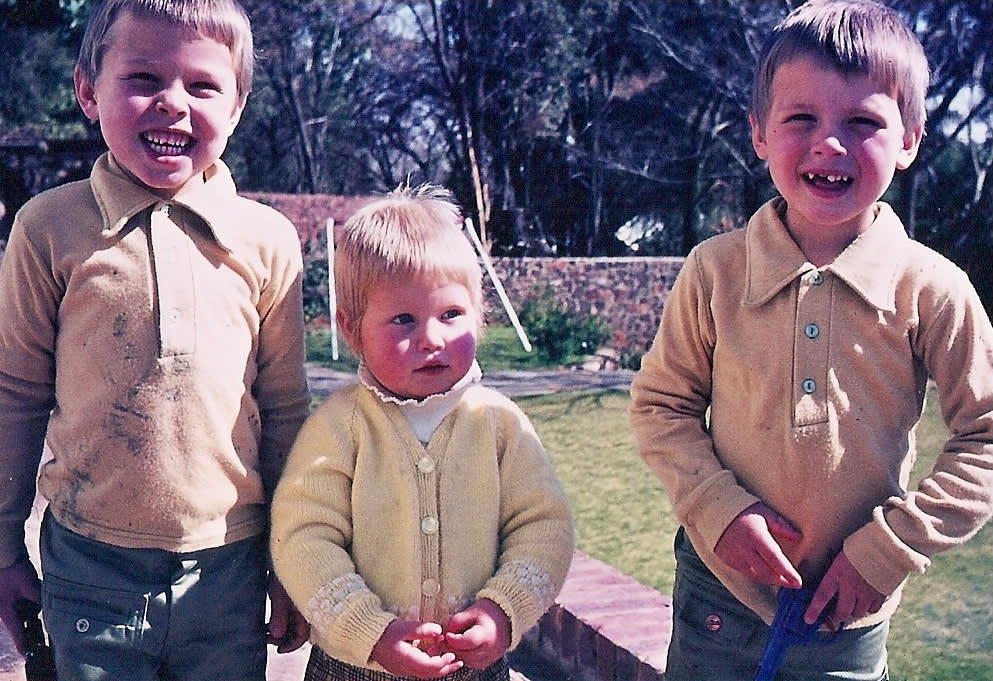
Maye’s profession played a significant role in shaping Kimbal’s early understanding of food. He witnessed firsthand the connection between diet and well-being, a concept that would become a cornerstone of his future endeavors. While Elon spent hours tinkering with electronics, Kimbal was drawn to the kitchen, perhaps sparked by his mother’s passion for healthy meals.
Education
Kimbal Musk’s educational path took a fascinating turn. After graduating from high school in Pretoria, South Africa, he followed his brother Elon to Kingston, Ontario, Canada. There, he enrolled at Queen’s University, a prestigious institution known for its strong business programs.

Earning a commerce degree in 1995 equipped Kimbal with the skills necessary to navigate the nascent world of digital ventures. While pursuing his studies, Kimbal gained valuable work experience at Scotiabank, a major Canadian bank. This early job offered him practical training in work ethic, financial management, and relationship building – all skills that would serve him well in the future.
This proved crucial as he and Elon co-founded Zip2, an online city guide that capitalized on the burgeoning internet boom. However, Kimbal’s educational journey didn’t end there. After the successful sale of Zip2, a shift in his interests led him to pursue a different kind of knowledge. He enrolled at the French Culinary Institute in New York City, a renowned institution dedicated to culinary arts.

This seemingly unorthodox move proved to be a defining moment. Immersed in the world of food and its impact on health, Kimbal’s focus shifted towards building a sustainable food system and ensuring access to healthy food for all. This unique educational background, encompassing business acumen and culinary expertise, has become a hallmark of Kimbal Musk’s approach to entrepreneurship and social impact.
Career
In 1994, Elon Musk founded College Pro Painters, a home painting firm that taught how to paint houses , how to sell ,and by Kimbal’s own admission it was mighty successful because it earned him $15000 the first year and $35000 the next. It was the hardest year of his life in terms of hard work.
Later, Kimbal along with his brother Elon founded Zip2, a company that provided directions to navigate and mapped the cities long before google started doing it and provided content for The New York Times and the Chicago Tribune newspapers which were newly launched on the internet and needed content.
After selling Zip2, the business saw rapid development, and was sold in 1999 for an astounding $307 million to Compaq Computers which helped Kimbal launch his own businesses thanks to windfall profits from this sale which was the biggest technical sale in the history and which also gave him the experience he needed as an entrepreneur.
Musk utilized profits and invested in several software and technology firms, including X.com and PayPal which were later merged and acquired by ebay for a whopping $1.5 bn. Musk later moved to New York City and enrolled in the French Culinary Institute. He launched The Kitchen, a communal cafe in Boulder, Colorado, with outlets in Chicago and downtown Denver.
OneRiot: Kimbal Musk’s Pioneering Venture in Real-Time Web Analytics
Before becoming a champion of the farm-to-table movement, Kimbal Musk was deeply entrenched in the tech world. One of his notable ventures was OneRiot, a company that sought to revolutionize real-time web analytics. This blog post delves into the story of OneRiot, its impact, and Kimbal Musk’s role in its development.
The Birth of OneRiot
OneRiot was founded in 2007 as a real-time search engine. Its primary goal was to index and deliver the most current information from the web, focusing on the social media landscape. This was a period when social media was exploding in popularity, and there was a significant demand for real-time information. Platforms like Twitter, Facebook, and others were rapidly growing, creating an ever-increasing flow of real-time data that traditional search engines like Google were not optimized to handle effectively.
Kimbal Musk, along with a team of co-founders including Tobias Peggs and Robert Reich, recognized this gap. They envisioned a platform that could aggregate data from social media and other dynamic web sources, providing users with up-to-the-minute information on trending topics, news, and social media buzz.
OneRiot’s Technology and Innovation
OneRiot’s core technology was its ability to index content in real-time. Traditional search engines rely on web crawlers that periodically scan the web, index content, and then serve that content to users in response to search queries. This process can take minutes to days, which is far too slow in the fast-paced world of social media.
OneRiot, on the other hand, developed a technology that could index and analyze data almost instantaneously. This involved not just scanning text but also understanding the context and significance of social interactions. For example, a tweet from a high-profile user or a viral Facebook post would be identified and ranked accordingly, providing users with the most relevant and trending information.
The platform also incorporated various filters and algorithms to ensure the quality and relevance of the content. This was crucial in an era where misinformation and low-quality content were rampant on social media. OneRiot aimed to deliver not just timely information but also trustworthy and relevant insights.
Kimbal Musk’s Vision and Leadership
Kimbal Musk’s role in OneRiot was pivotal. As an entrepreneur with a strong background in both tech and business, he brought a unique perspective to the company. His vision was to create a tool that could democratize access to real-time information, empowering users to stay informed and make better decisions.
Musk’s leadership style was characterized by a focus on innovation and a deep understanding of market needs. He emphasized the importance of creating a user-centric product, one that was not just technologically advanced but also intuitive and easy to use. This approach helped OneRiot gain traction among users who were looking for an efficient way to navigate the overwhelming amount of information on social media.
Challenges and Competition
Despite its innovative technology and strong leadership, OneRiot faced several challenges. The real-time search market was becoming increasingly competitive, with other players like Twitter’s own search functionality and Google’s efforts to incorporate real-time results into its search engine. Additionally, monetizing real-time search proved to be a complex task. While there was clear value in the service, finding a sustainable revenue model was difficult.
OneRiot experimented with various monetization strategies, including advertising and data licensing. However, the path to profitability was not straightforward. The company needed to balance the cost of maintaining its real-time indexing infrastructure with the revenue generated from its services.
Acquisition and Legacy
In 2011, OneRiot was acquired by Walmart Labs, the technology arm of retail giant Walmart. The acquisition was a strategic move by Walmart to enhance its own capabilities in real-time analytics and social media insights. OneRiot’s technology was integrated into Walmart’s broader efforts to leverage big data and social media trends to improve its retail operations and customer engagement.
For Kimbal Musk, the acquisition marked a successful exit from the venture, allowing him to focus on his other passions, particularly in the food and agriculture sector. OneRiot’s technology and the team’s expertise continued to influence Walmart’s data strategy, contributing to the retailer’s ongoing efforts to innovate in the digital age.
OneRiot may not have become a household name like Twitter or Google, but its impact on the tech industry is undeniable. The company was ahead of its time in recognizing the importance of real-time information and developing the technology to harness it. Kimbal Musk’s vision and leadership were crucial in shaping OneRiot’s direction and success.
Today, as Kimbal Musk continues to make strides in sustainable agriculture and food systems, OneRiot remains a testament to his versatility and entrepreneurial spirit. The story of OneRiot is a reminder of the ever-evolving nature of the tech industry and the importance of innovation in driving progress. It also highlights how visionary leaders like Kimbal Musk can bridge different industries, applying lessons learned in one field to create groundbreaking advancements in another.
A Near Death Experience Changes The Course Of His Life
Kimbal, an avid skier, wasn’t expecting danger on a snow tubing trip with his children in Jackson Hole, Wyoming. However, a moment of unexpected turbulence sent him hurtling headfirst, resulting in a ruptured spine. The diagnosis was grim: broken neck and temporary paralysis. What followed were months of hospitalization, gruelling physical therapy, and an immense mental struggle. As Kimbal himself described it as a “near-death experience” that forced him to confront his own mortality.

After this really bad accident that broke his neck in 2010, he spent two months in bed and was paralyzed. He had plenty of time to reflect on his life’s purpose during that period, and it became evident to him. His aim was to facilitate the transition from an industrial food culture to a real food culture as quickly as possible. Even though it was challenging, this experience was one of the nicest things that had ever happened to him since it made him face and comprehend his place in the world.
Rebuilding Life, Brick by Brick
The road to recovery was long and arduous. Regaining even the most basic motor functions was a monumental task. Yet, Kimbal refused to succumb to despair. He channelised his entrepreneurial spirit into his rehabilitation, attacking physical therapy with the same determination he brought to his business ventures. The experience also brought a new perspective. The once fast-paced businessman found himself appreciating the simple act of breathing, the ability to move his limbs, and the precious moments spent with his family.
A Shift in Focus: From Tech to Food
Prior to his accident, Kimbal’s career had been heavily invested in the tech world, alongside his brother Elon. However, the brush with mortality had a profound impact on his priorities.
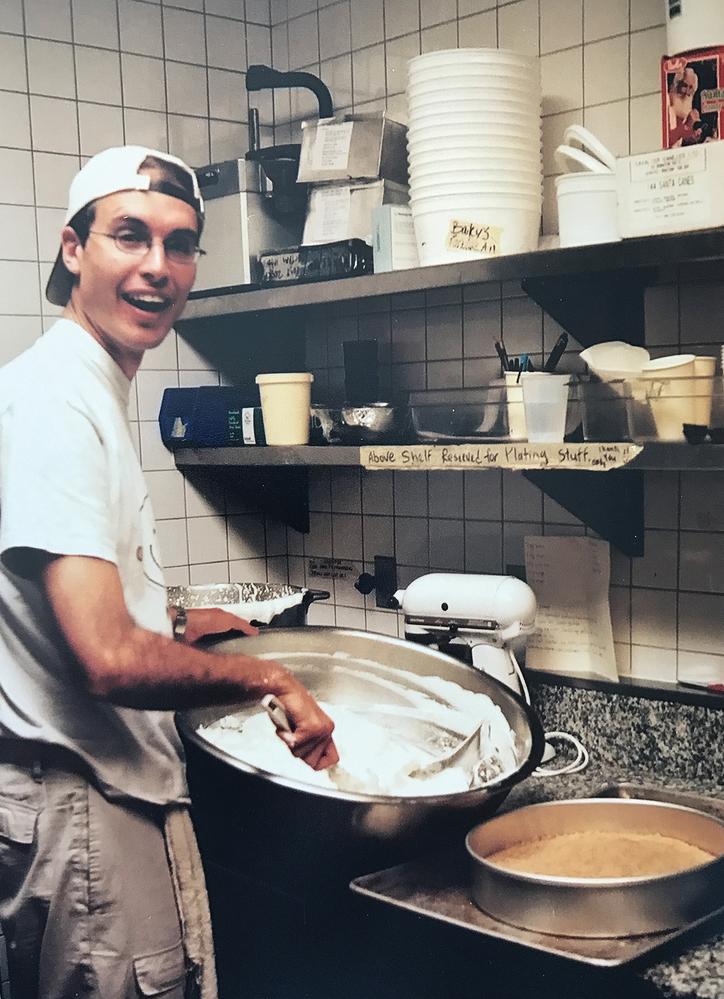
He began to see food as a fundamental aspect of human well-being, a cornerstone of a healthy and sustainable society. This realization led him to dedicate his efforts towards revolutionizing the food system.
The Kitchen Restaurant
The first restaurant, The Kitchen Boulder, opened its doors in Boulder, Colorado, in 2004. Musk, along with his co-founders Hugo Matheson and Jen Lewin, envisioned a community-centric eatery that championed locally sourced ingredients and sustainable practices. The concept quickly resonated with diners, sparking a movement that would expand across the United States.
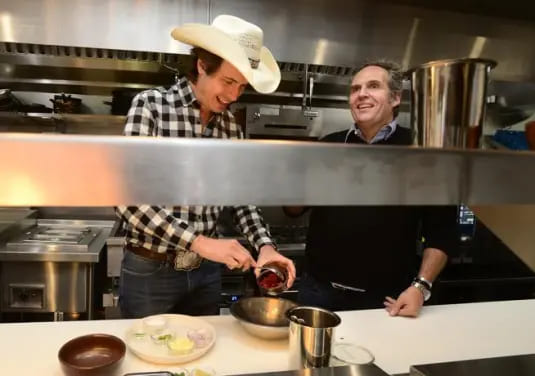
Core Philosophy: Real Food Culture
The Kitchen Restaurant Group is founded on the principle of “real food,” which emphasizes fresh, locally sourced, and sustainably produced ingredients. This philosophy is a response to the pervasive industrial food culture characterized by processed foods and environmentally harmful agricultural practices. By fostering a real food culture, The Kitchen aims to reconnect people with the origins of their food and the communities that produce it.
The Three Pillars of The Kitchen Philosophy:
The Kitchen Restaurant Group operates with a clear philosophy built on three pillars:
Real Food: The focus is on fresh, seasonal ingredients sourced directly from local farmers. This not only ensures the quality of the food but also creates a mutually beneficial relationship with local agriculture, boosting the regional economy.
Community Connection: Kimbal believes in the power of food to bring people together. The restaurants are designed to be welcoming spaces that foster a sense of belonging and connection.
Environmental Responsibility: The Kitchen Restaurant Group prioritizes sustainable practices throughout its operations, from minimizing food waste to using eco-friendly packaging and energy-efficient appliances.
Three Concepts, One Mission
The Kitchen Restaurant Group isn’t a one-size-fits-all operation. It encompasses three distinct restaurant concepts, each catering to a specific dining experience:
The Kitchen: The crown jewel of the group, The Kitchen offers a fine-dining experience with a focus on innovative cuisine and impeccable service. Locally sourced ingredients take center stage, transformed into seasonal menus that tantalize the taste buds.
Next Door American Eatery: This concept takes a more casual approach, offering a welcoming environment for families and friends to gather. The menu features comfort food classics with a gourmet twist, perfect for a relaxed meal or a lively weekend brunch.
Hedge Row American Bistro: Occupying a middle ground between The Kitchen and Next Door, Hedge Row offers a menu that leans towards modern American cuisine, with a strong emphasis on shared plates and a lively bar scene.
The Big Green
In the heart of urban landscapes across America, a quiet revolution is taking root. Children don their gardening gloves, dig into the soil, and witness the magic of transformation as seeds sprout into vibrant vegetables. This isn’t a scene from a bygone era; it’s the reality nurtured by Big Green, a non-profit organization co-founded by entrepreneur Kimbal Musk, dedicated to building Learning Gardens in schools.
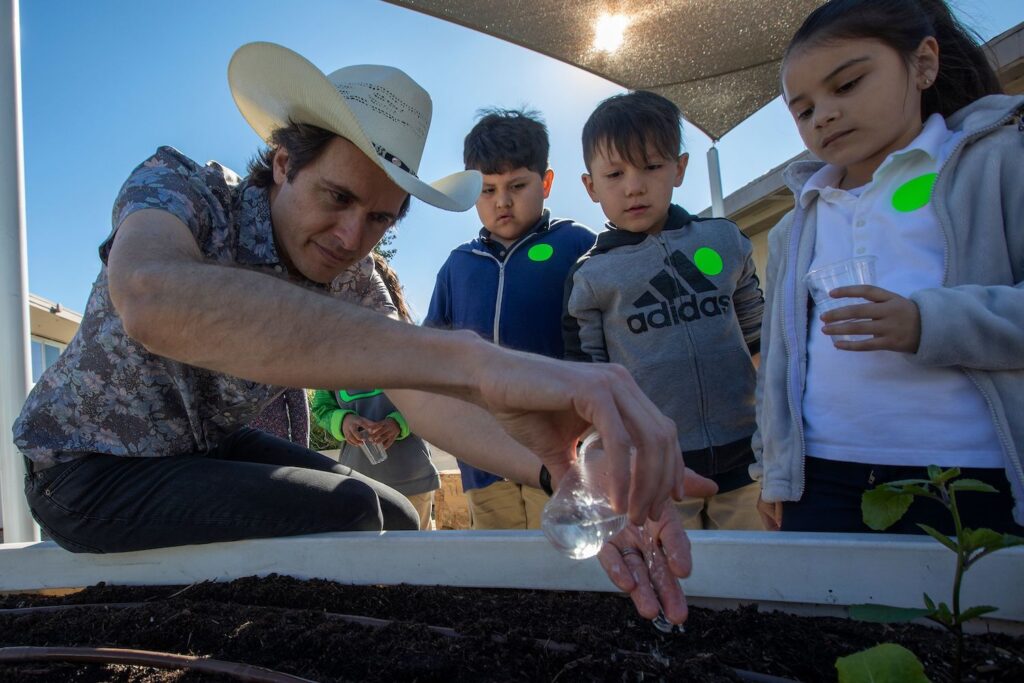
In 2011, inspired by the impact of school gardens he’d witnessed with his own children, Kimbal teamed up with Hugo Matheson to establish The Kitchen Community, later renamed Big Green. Their mission was clear: create dynamic Learning Gardens in schoolyards, transforming them into vibrant outdoor classrooms that would connect children to real food, educate them about healthy eating, and foster a sense of environmental responsibility.
Big Green’s approach is refreshingly hands-on. Gone are the days of rote memorization about the food chain. Instead, children get their hands dirty, learning about planting, tending to crops, and harvesting the fruits (and vegetables) of their labor. These Learning Gardens become living laboratories, where students witness firsthand the connection between seeds, soil, and sustenance.
With hundreds of gardens developed and affecting over 125,000 pupils every day, Big Green’s success cemented Kimbal’s dedication to using food as a vehicle for social change. A portion of every meal at a The Kitchen restaurant is donated to support the establishment of Learning Gardens in the neighbourhood.
The Kitchen Community has constructed 260 Learning Gardens in Chicago, Denver, Los Angeles, and Memphis by the end of 2015. Musk is also a co-founder of Square Roots, an urban farming enterprise that cultivates organic produce within shipping containers. The company partnered with Gordon Food Services (GFS) to expand outside of New York City.
The benefits of Big Green’s programs extend far beyond basic gardening skills. Studies have shown that participation in Learning Gardens can:
Improve dietary habits: Children exposed to gardening are more likely to develop a taste for fresh produce and make healthier food choices.
Boost academic performance: Learning Gardens have been linked to improved test scores and increased engagement in STEM (Science, Technology, Engineering, and Math) subjects.
Promote environmental awareness: Students gain a deeper understanding of environmental issues like sustainability and resource management.
Foster social and emotional learning: The collaborative nature of gardening activities teaches teamwork, communication, and responsibility.
Big Green’s impact isn’t limited to the schools they directly partner with. They actively work to build a network of like-minded organizations and educators. This creates a ripple effect, inspiring the creation of more Learning Gardens and spreading the message of healthy food and environmental stewardship.
Looking Ahead: A Harvest of Hope
Funding for this initiative comes from institutional donations, service school contract fees, and one percent of The Kitchen restaurants’ sales. Currently servicing 100,000 children and over 3,000 teachers in six US cities—Denver, Chicago, Indianapolis, Los Angeles, Memphis, and Pittsburgh—there are 330 Learning Gardens schools with plans to grow to many more cities. Teachers who work in the gardens report that their kids are more likely to identify wholesome meals and are 23% more likely to eat the fruits and vegetables that are served to them at lunch.
Big Green’s vision for the future is ambitious yet achievable. They aim to build Learning Gardens in every school across America, creating a generation of children who are not only well-nourished but also empowered with the knowledge and skills to build a more sustainable food system.
Kimbal Musk’s dream, sparked by a passion for healthy eating and a desire to connect children to where their food comes from, is blossoming into a nationwide movement. Big Green is not just about gardens; it’s about cultivating a healthier future, one seedling at a time.
Square Roots
Kimbal’s passion of entrepreneurship kept pushing him in the direction of even more revolutionary solutions. He co-founded Square Roots in 2016 after seeing the shortcomings of conventional agricultural techniques and the rising desire for locally produced, sustainable food.
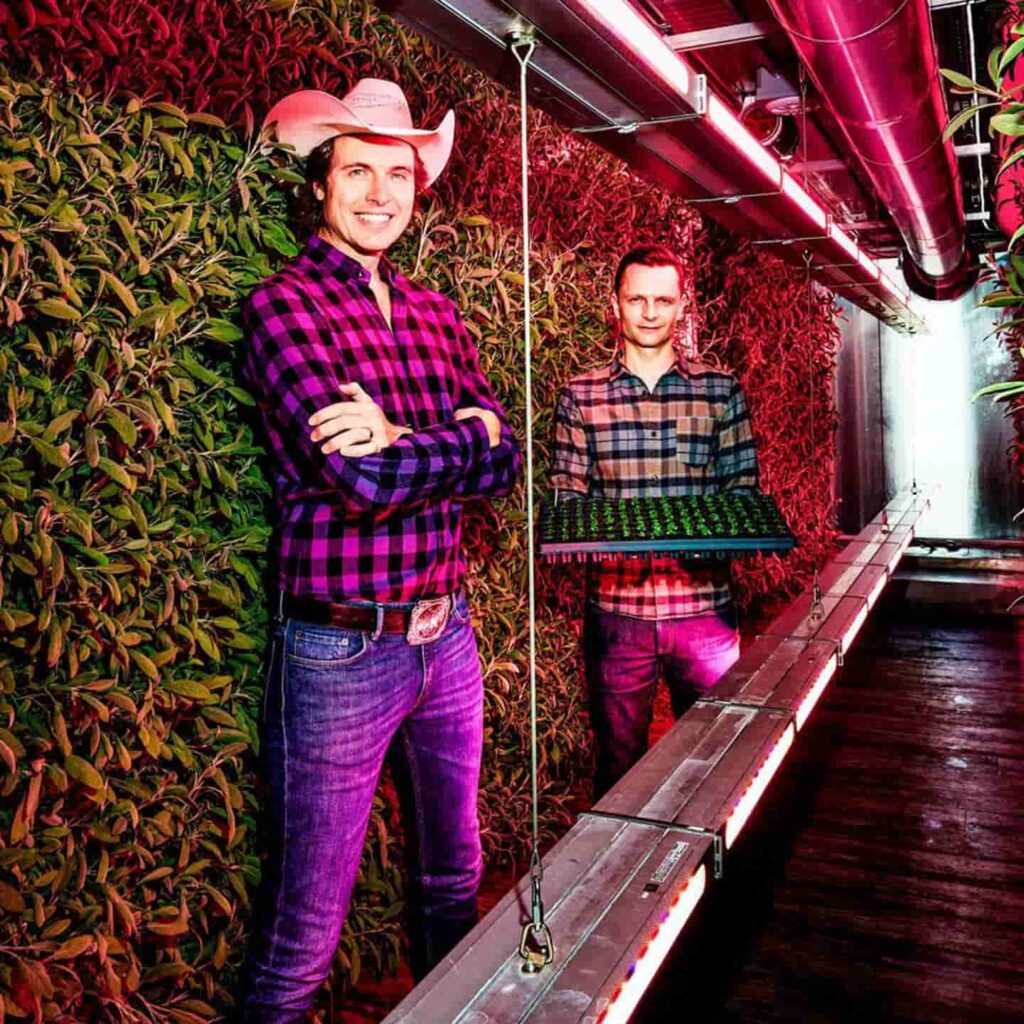
This urban farming startup grows fresh food year-round in converted shipping containers by using hydroponics and controlled-environment agriculture (CEA) technology. Square Roots using cutting edge technology develops vertical farms in climate controlled shipping containers for growing year round fresh produce is an attractive option for urban settings because of its creative method, which addresses difficulties of space restrictions, water scarcity, and reduced environmental effect.
Relationships and Marriage
Kimbal married Jen Lewin in 2001 and together they cofounded the kitchen restaurants group. They shared their interests on social commitment and philanthropy. They had three children together but they divorced in 2010.
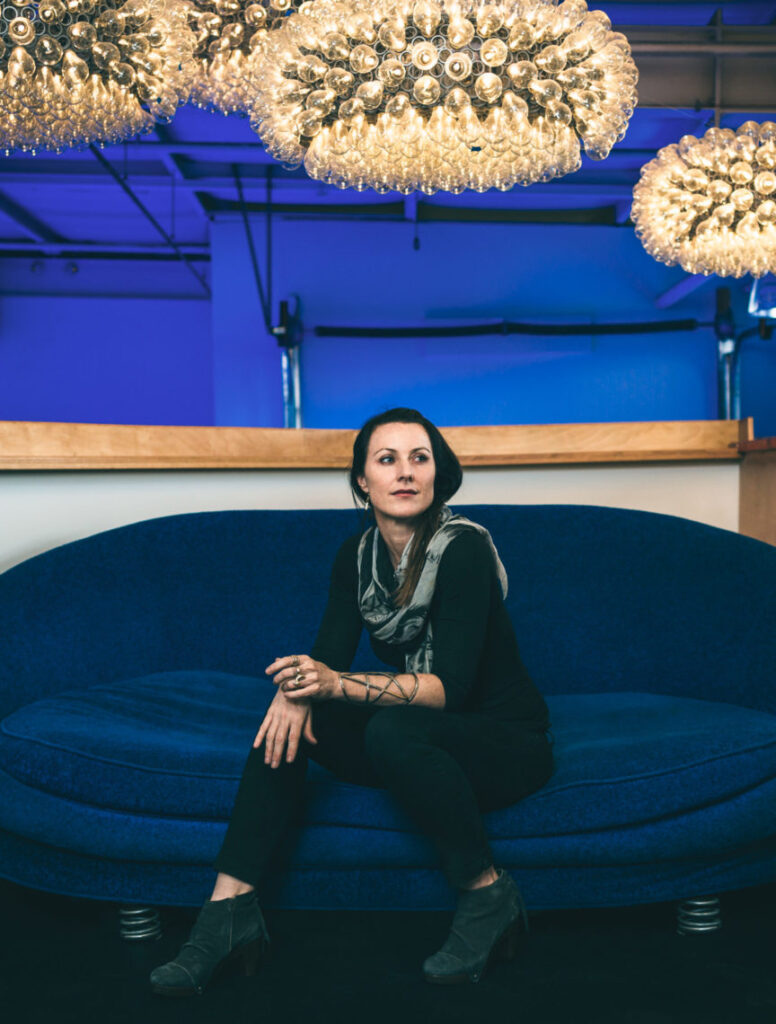
Jean supported kimbal and was a source of inspiration for his projects like the Kitchen Restaurant group , Big Green and SquareRoot.
Then Kimbal married Christiana Wyly daughter of the billionaire Sam Wyly in a private wedding ceremony in a dessert in april 2018.
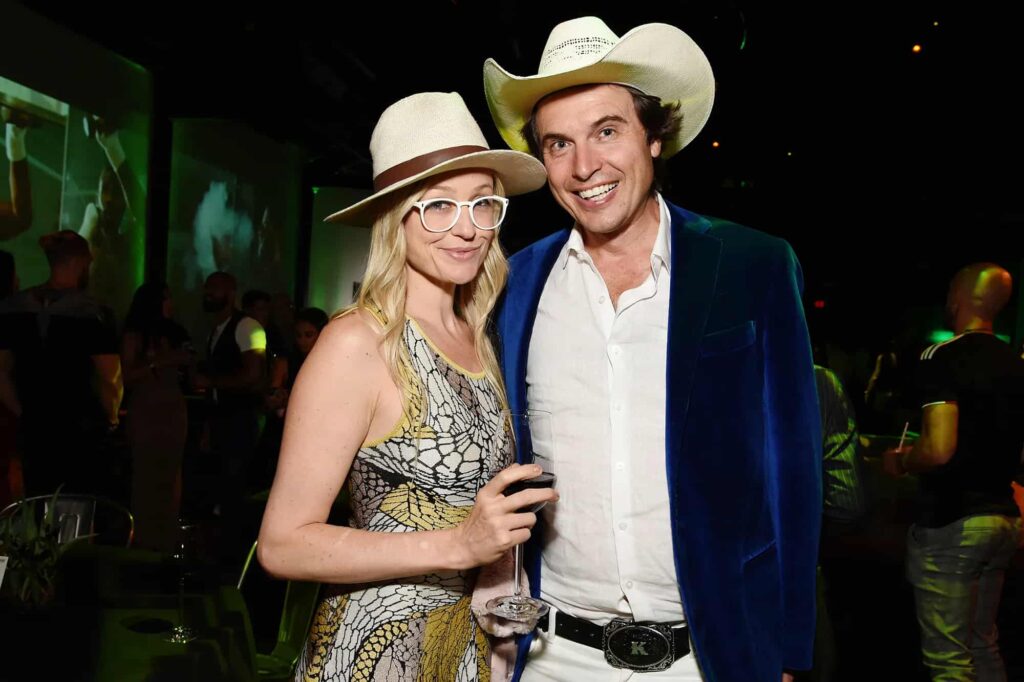
TV Cameos
Musk has featured on several television shows, including “Risk Takers” (2011), “60 Minutes” (2014), “Chelsea” (2016), “Couple Thinkers” (2017), “Megyn Kelly Today” (2018), “Today” (2019), “Chopped” (2019), and “To Dine For with Kate Sullivan” (2021). In 2018, the World Economic Forum named Kimbal a “Global Social Entrepreneur of the Year.”
Controversies
Nextdoor and the Family Fund Controversy
In 2011, Kimbal became chairman of the board at Nextdoor, a social networking platform for neighborhoods. He implemented an employee-funded program called the “Family Fund.” This fund, supposedly designed to help employees facing hardship, experienced turbulence during the COVID-19 pandemic. As restaurants shut down and employees faced financial strain, access to the fund became restricted. Many employees reported feeling locked out of their contributions, raising questions about the fund’s transparency and purpose.
Kimbal addressed the controversy, stating that the fund wasn’t meant for widespread pandemic support but for specific emergencies. He also cited a lack of accurate reporting by journalists. However, the optics of a program not supporting its intended beneficiaries during a crisis tarnished his image.
Board Seat at Tesla: Questions of Objectivity
Kimbal serves as a board member at Tesla, his brother’s flagship company. This position has drawn criticism from some shareholders who believe Kimbal’s close relationship with Elon compromises his ability to provide objective oversight. They point to instances of Elon’s tweets negatively impacting Tesla’s stock price as evidence of the potential for bias. Additionally, Kimbal’s own business dealings, like the Nextdoor Family Fund controversy, raise concerns about the board’s overall effectiveness in holding Tesla accountable.
The Rift Between The Two Brothers
A biography by Walter Isaacson revealed a physical altercation between Kimbal and Elon during their Zip2 days. The book describes Kimbal biting flesh off Elon’s hand during a heated argument, a glimpse into the occasionally volatile nature of their sibling dynamic. While the incident may be a unique family anecdote, it fuels speculation about potential tensions within the Musk family and how this might affect their business ventures.
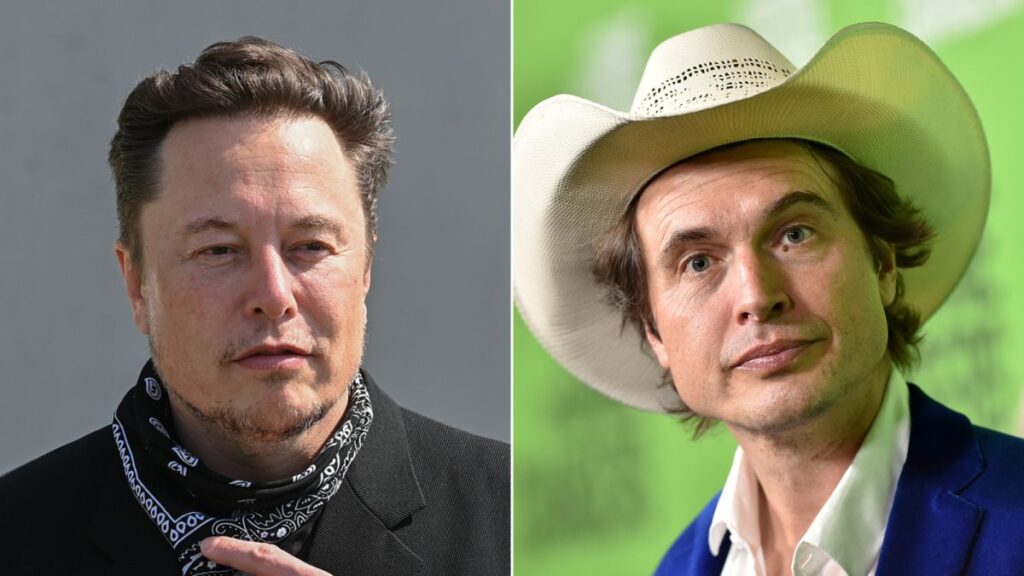
Beyond Controversy: Kimbal’s Social Impact Efforts
Despite these controversies, Kimbal remains dedicated to social impact through organizations like Big Green, a non-profit focused on building learning gardens in schools across America. He advocates for increased access to fresh food and champions sustainable agricultural practices. These initiatives showcase a genuine commitment to creating positive change, a counterpoint to the negativity surrounding his other endeavors.
Kimbal Musk’s story is one of entrepreneurial success, social impact initiatives, and controversy. While he isn’t as media-hungry as his brother, his actions have garnered significant attention. Moving forward, Kimbal’s ability to navigate the complexities of business and maintain transparency will be crucial in shaping his legacy.
Net Worth
Kimbal Musk’s total net worth is estimated to be around $700 mn , given his share holding in Tesla and various other ventures that he is a part of. Only Tesla and Chipotle Mexican Grille Inc shareholding account for $592 million of his total fortune of 700 million dollars.
Early Ventures and Rise to Prominence
Kimbal Musk’s journey in the business world began alongside Elon with Zip2, a company that provided business directories and maps for newspapers. When Compaq acquired Zip2 for nearly $307 million in 1999, Kimbal pocketed $15 million, setting the stage for his future ventures.
Following Zip2, Kimbal co-founded X.com, which later became PayPal after a merger. When eBay acquired PayPal for $1.5 billion in 2002, Kimbal’s stake in the company contributed significantly to his growing wealth. This early success provided him with the capital and confidence to explore diverse business interests.
Shares and Securities
Kimbal Musk is a key shareholder in several high-profile companies. His investments span across multiple industries, reflecting a strategic approach to wealth accumulation.
Tesla, Inc.
Kimbal Musk has been a member of Tesla’s board of directors since 2004. As of the latest filings, he owns approximately 1608720 shares of Tesla making up 0.05% of Tesla as of April 2024. With Tesla’s stock price fluctuating around $170 per share, this portion of his portfolio is valued at around $273 million. His role in Tesla not only bolsters his financial standing but also reinforces his influence in the company’s strategic decisions.
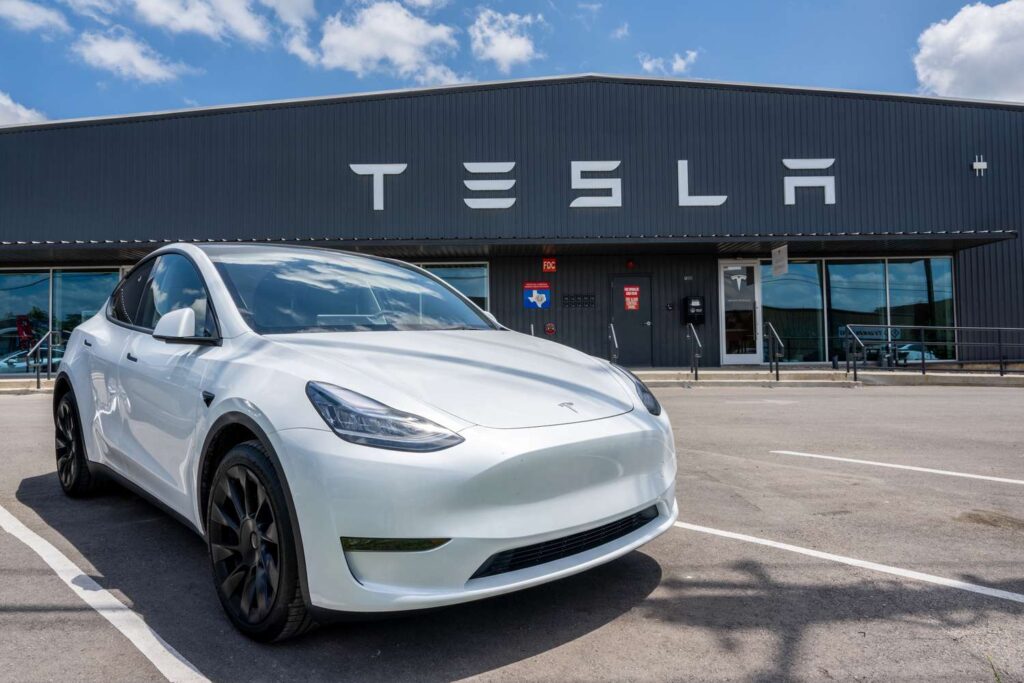
SpaceX
Although SpaceX is a private company, Kimbal Musk’s stake in his brother’s space exploration venture is noteworthy. While the exact percentage of his ownership is not publicly disclosed, estimates suggest that his shares could be worth tens of millions, given SpaceX’s valuation exceeding $100 billion.
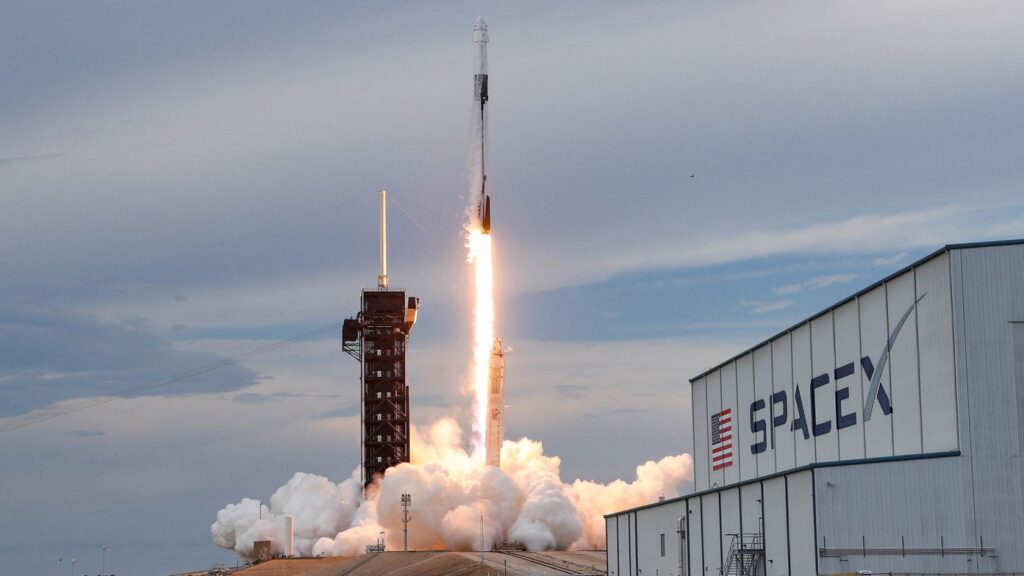
Square Roots
Kimbal co-founded Square Roots, an urban farming incubator, aiming to revolutionize food production through technology. His significant equity in the company positions him as a pivotal figure in the agri-tech industry. While Square Roots is still a private entity, its growth potential and Kimbal’s stake suggest a substantial future valuation.
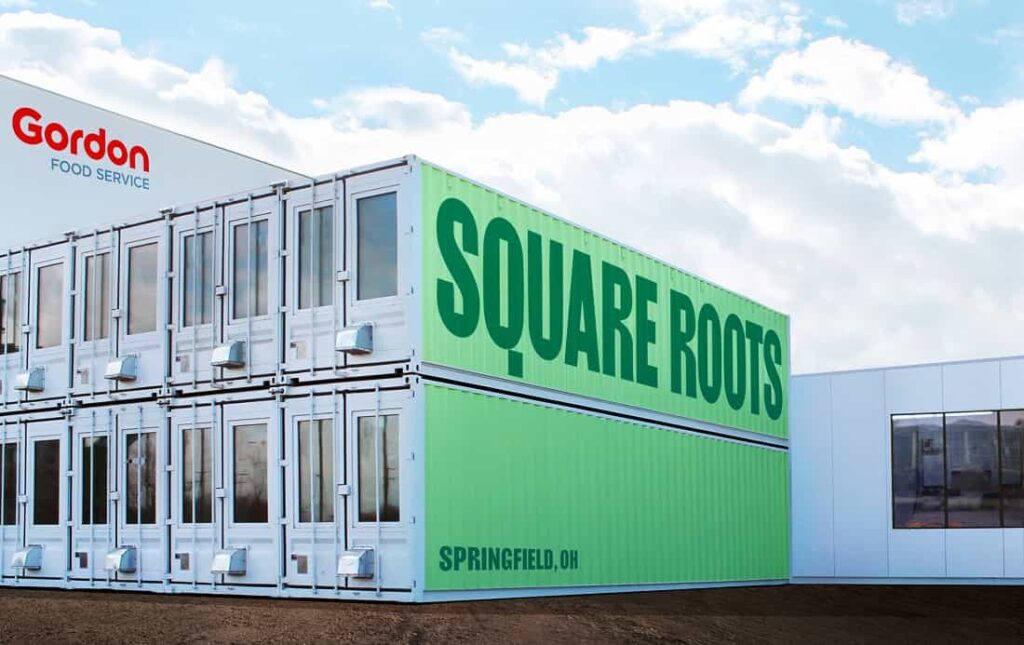
Real Estate Holdings
Kimbal Musk’s real estate investments reflect both his business acumen and personal interests. His properties are spread across the United States, featuring a mix of residential, commercial, and agricultural assets.
Residential Properties
Kimbal Musk owns a luxurious residence in Boulder, Colorado. The property, purchased for $5 million, is situated in a prime location, offering stunning views of the Rocky Mountains. In addition to this, he has a high-end apartment in New York City, valued at approximately $4 million. These residences not only serve as personal retreats but also represent significant real estate investments.
Agricultural Land
Reflecting his passion for sustainable agriculture, Kimbal Musk has invested in several agricultural properties. These lands are used to test and implement innovative farming techniques developed by Square Roots. By owning agricultural land, Kimbal ensures control over his farming operations and the ability to experiment with new technologies aimed at improving food production.
Shares in Tesla: $273 million
Stake in SpaceX: Estimated $30 million
Square Roots Equity: Estimated $100 million
Real Estate Holdings: Approximately $200 million
Other Investments (Restaurants, Startups): Approximately $120 million
Total Estimated Net Worth: $720 million
This estimate underscores Kimbal Musk’s position as a significant player in various industries, leveraging his wealth to drive innovation and positive change.
Kimbal Musk’s financial empire is a testament to his entrepreneurial spirit and commitment to sustainable business practices. His diverse portfolio, spanning shares, securities, real estate, and other investments, highlights a strategic approach to wealth accumulation and management. As he continues to innovate and invest in sectors that align with his values, Kimbal Musk’s influence and net worth are poised to grow even further. Through his ventures, he not only enhances his financial standing but also contributes to meaningful advancements in technology, agriculture, and community well-being.
Frequently Asked Questions
Q: What were Kimbal Musk’s early entrepreneurial ventures?
A: Alongside his brother Elon, Kimbal co-founded Zip2, a company that developed early web-based maps and city guides. Zip2 was acquired by Compaq in 1999 and later became part of Yahoo Maps.
Q: What is Kimbal Musk best known for today?
A: Kimbal’s current focus lies in the food and sustainability industries. He is the owner of The Kitchen Restaurant Group, a collection of restaurants known for their commitment to locally sourced, high-quality ingredients.
Q: Are there any other ventures Kimbal Musk is involved in?
A: Absolutely! Kimbal is actively involved in promoting a healthier food system. He co-founded Big Green, a non-profit organization that builds Learning Gardens in schools across the US, fostering a connection between children and healthy food. Additionally, he co-founded Square Roots, a company dedicated to urban indoor farming using hydroponics.
Q: When did Kimbal Musk’s passion for food begin?
A: Kimbal’s interest in food reportedly stemmed from a young age. He honed his culinary skills at the prestigious French Culinary Institute in New York City.
Q: How does Kimbal’s approach to restaurants differ from the norm?
A: The Kitchen restaurants prioritize sourcing ingredients directly from local farmers, fostering a strong connection between the farm and the table. This not only ensures fresh, high-quality food but also supports local agricultural communities.
Q: Does Kimbal Musk advocate for specific dietary philosophies?
A: While Kimbal champions fresh, locally sourced ingredients, he doesn’t strictly advocate for any particular diet. His focus seems to be on building a more sustainable and accessible food system for all.
Q: How do Kimbal Musk’s various ventures contribute to sustainability?
A: Kimbal’s work with Big Green educates children about healthy eating and fosters a connection with where their food comes from. Square Roots’ indoor farming technology aims to provide fresh, local produce in urban areas, reducing reliance on long-distance transportation and minimizing environmental impact.
Q: Does Kimbal Musk actively participate in environmental advocacy?
A: Kimbal’s work inherently promotes a more sustainable food system. However, details about his specific advocacy efforts remain less public compared to his entrepreneurial and culinary pursuits.
Q: What are Kimbal Musk’s plans for the future?
A: Kimbal is likely to continue expanding The Kitchen restaurant group, advocating for a more sustainable food system through Big Green and Square Roots, and possibly exploring new ventures that align with his passion for food, community, and environmental responsibility.
Reference : http://nypost.com





